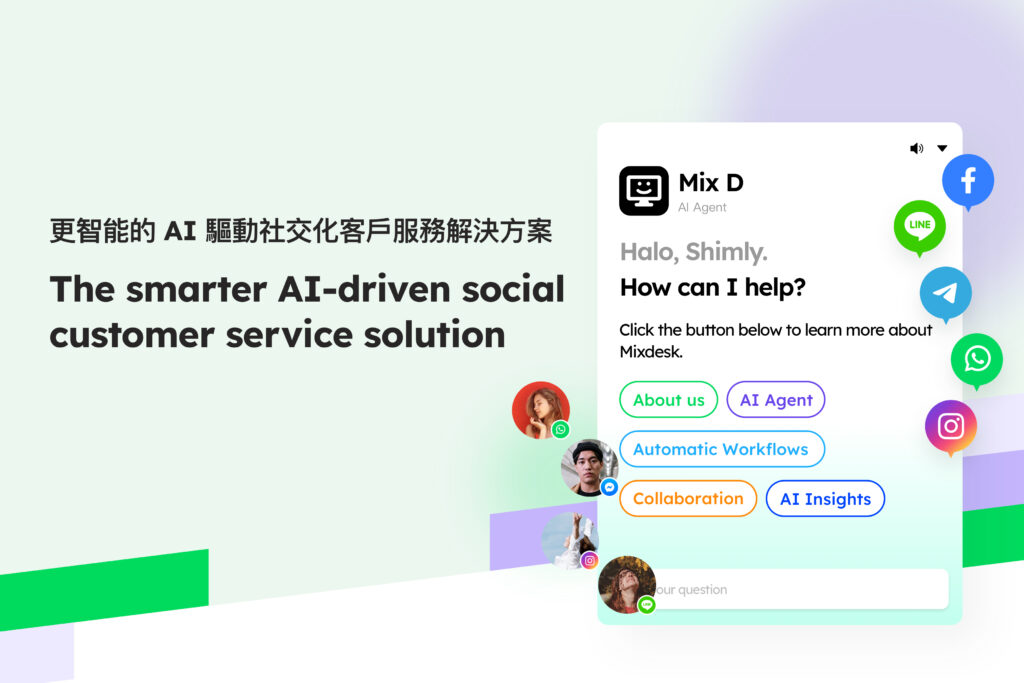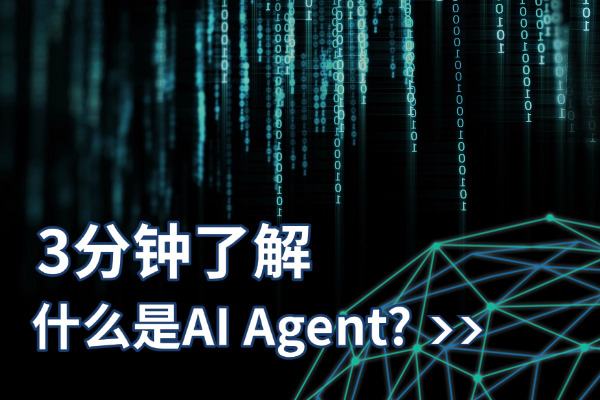Author of this article:Miya, Search engine optimization expert
Imagine that your company has a 24/7, endless “customer service agent” that can not only quickly answer various customer questions, but also provide tailor-made suggestions based on each customer's historical behavior and preferences. This is not just a vision for the future, butSmart customer serviceThe reality. With the rapid development of artificial intelligence, machine learning and natural language processing technologies, the traditional manual customer service model is gradually being replaced by more efficient and intelligent AI customer service.
In this era of information overload and increasingly diversified customer needs, companies are facing unprecedented challenges: how to ensure that every customer can obtain timely, accurate and personalized service, while avoiding excessive labor costs? The answer is smart customer service. It passesAutomated and intelligent service solutions, Help companies improve customer satisfaction, reduce response time, and effectively share cumbersome customer service work, so that manual customer service can focus on higher-value matters.
Mixdesk
AI Agent

- Can smart customer service use MCP?
- Intelligent customer service system architecture: the core element of building an efficient service platform
- Intelligent customer service system construction: a guide to the whole process from demand analysis to technical selection
- Intelligent customer service robot: A smart tool to improve the efficiency of customer service
- AI intelligent customer service solution
- Mixdesk intelligent Customer Service solution helps enterprises optimize customer service
Can smart customer service use MCP?
How to effectively manage and integrate these diverse communication channels has become a major challenge for enterprises,MCP (multi-channel platform)As an emerging technology, it was born to meet this challenge.
so,Can MCP be inIntelligent customer service systemPlay a role? Can it help companies solve the fragmentation problems caused by multi-channel communication, and improve customer service efficiency and customer experience?
The current situation of intelligent customer service and the concept of MCP (multi-channel platform)
With the improvement of customer expectations, the traditional customer service model has gradually been unable to meet the needs. Companies need to process information from multiple channels in a more efficient way, which isMCPThe core value lies in. MCP, that is, a multi-channel platform, is a technology platform that can integrate different communication channels (such as telephone, SMS, social media, e-mail, etc.) into a unified interface. Through MCP, enterprises can manage different communication channels on the same platform, improving response speed and service efficiency.
Ask a question: Is MCP suitable for the application of intelligent customer service?
Intelligent customer service systemIt relies on AI technology to provide automated services, and when multiple communication channels are involved, how to integrate these channels and provide consistent services has become an important issue. As an integrated channel technology, can MCP be combined with an intelligent customer service system to jointly improve service quality and efficiency? This issue is the core of this article.
Core functions of MCP
The core functions of MCP areMulti-channel integration and management, It centralizes different customer interaction channels into one platform, allowing enterprises to manage all customer messages in one interface.
- Channel integration: MCP can aggregate messages from various communication channels such as SMS, social media, instant messaging, telephone, and e-mail into the same system. Enterprises can view and respond to customer inquiries from different channels through the MCP platform, avoiding the complexity of cross-platform management.
- Unified customer management: Through MCP, all customer interaction history will be aggregated into a customer file, and customer service personnel can view customer interaction records on different platforms to provide customers with more personalized services.
- Improve collaboration efficiency: Multiple customer service teams can collaborate on customer issues on the MCP platform, and customer service personnel can share information and collaborate on replies to avoid information omissions and duplication of work.
Example: How MCP integrates different communication channels
For example, if a customer initiates a consultation through social media, MCP can integrate the message with other consultation information sent by the customer via email or SMS on the same platform. Customer service personnel do not need to switch between multiple back-office systems, and can quickly respond to customer needs and improve work efficiency.
-
Comprehensive analysis of intelligent customer service: A guide to the whole process of architecture, construction and AI solutions
智能客服通过自动化、智能化的服务解决方案,帮助企业提升客户满意度,减少响应时间,并有效分担繁琐的客服工作,让人…
Intelligent customer service system architecture: the core element of building an efficient service platform
Imagine when the customer is on the phone、Social mediaOr when a problem is raised in the chat window, the system can instantly analyze its needs and provide an accurate solution. Behind all this, it isIntelligent customer service systemEfficient operation supported by the architecture. However, to achieve this efficient service experience, a powerful and flexible architecture is needed to support it. Whether it is the application of the AI engine, orIntelligent management of data, All depend on the rationality of the architecture design.
Intelligent customer service systemThe importance and impact of architecture
The intelligent customer service system architecture is the basis for achieving efficient service, and it determines the response speed, stability and expansion capabilities of the entire customer service system. With the diversification of customer needs, traditional customer service systems often cannot meet the high concurrency、MultichannelService requirements. The design of the intelligent customer service system architecture directly affects the responsiveness and service quality of the system. A well-optimized architecture can ensure that customer requests are processed in a timely manner, and can be flexibly expanded according to the growth of enterprise size and changes in service needs.
The basic composition of the intelligent customer service system architecture
The intelligent customer service system architecture usually consists of multiple core components, each with its own unique functions and functions. The main components include:
- AI engine: The AI engine is the “brain” of the intelligent customer service system. It is responsible for processing various information entered by users and generating responses based on preset rules or machine learning algorithms. Natural language processing (NLP), speech recognition and other technologies all play an important role in this part.
- Data storage: The system needs a stable and scalable data storage module to store customer information, historical dialogue records, and other related data. The design of this part is critical to the performance and data security of the system.
- User interface: The user interface is the channel for customers to interact with the intelligent customer service system, which may include Web chat windows and mobile applications.、Social media platformetc. The interface design needs to ensure easy operation and a good user experience.
- Service management module: This is the management background of the customer service system, which is used to schedule and monitor the customer service process. The service management module helps administrators view system performance and customer needs in real time, and optimize service strategies.
-
Comprehensive analysis of intelligent customer service: A guide to the whole process of architecture, construction and AI solutions
智能客服通过自动化、智能化的服务解决方案,帮助企业提升客户满意度,减少响应时间,并有效分担繁琐的客服工作,让人…
Intelligent customer service system construction: a guide to the whole process from demand analysis to technical selection
With the increasing diversification and personalization of customer service needs, enterprises urgently need an efficient intelligent customer service system to optimize service processes, improve response speed and reduce operating costs. However, building a comprehensive and efficient intelligent customer service system is not an overnight process. From clarifying business requirements to selecting technology platforms to system architecture design, every step requires precise planning and execution.
Demand analysis: forIntelligent customer service system constructionLay the foundation
Demand analysis is the first step in the construction of an intelligent customer service system, which provides the direction for system design and implementation. At this stage, enterprises need to communicate deeply with various departments, understand customer needs and business goals, and clarify the functional requirements of the system. Specifically, the requirements analysis should answer the following questions:
- Multi-channel integration requirements:Customers use multiple channels (such as SMS)、Social media, websites, etc.) To interact with enterprises, the system needs to support the seamless integration of these channels.
- Automation support and manual access: Which businesses can be processed through automation? Which scenarios require manual customer service intervention? Clarifying this point helps optimize the customer service process.
- Intelligent analysis andCustomer data management: How to collect and analyze customer data through the system to improve service quality and customer experience?
In this process,Open source intelligent Customer Service SystemEspecially suitable for customized needs. The open source platform provides enterprises with great flexibility and can customize functions according to specific business needs without the need to be restricted by commercial software vendors.
Technology selection: choose the appropriate intelligent customer service system construction technology
In the process of building an intelligent customer service system, technology selection is essential. Choosing the right technology platform can ensure that the system has efficient performance, easy extensibility and low cost. Common technical options include:
- Open source platform vs commercial solution
Open source platforms usually provide higher flexibility and customization. Enterprises can modify or enhance functions according to specific needs, avoiding the limitations of fixed functions in commercial solutions. Commercial solutions tend to provide more off-the-shelf features and support, but they are less flexible and scalable.
- Advantages of open source technology stack
Open source technology stack (such as Node. js, Python, etc.) Can provide a flexible development framework for the construction of intelligent customer service systems. Node. js is very suitable for building systems with high concurrency and real-time response, while Python has become a platform for developing AI customer service systems because of its powerful data processing and AI support.
-
Chatbots and conversational artificial intelligence: Is there any difference?
Chatbots focus on automating specific tasks. Conversational artificial intelligence is a broader term that typically focuses on simulating human conversations in more advanced ways.
Intelligent customer service robot: A smart tool to improve the efficiency of customer service
Nowadays, more and more companies are beginning to realize that intelligent customer service robots are not only a tool to improve efficiency, but also an important tool to improve the customer experience, reduce operating costs, and enhance customer loyalty. So, what exactly is an intelligent customer service robot, how does it work, and in which scenarios can it maximize its benefits?
Intelligent customer service robotWhat is it?
Intelligent customer service robot is a kind ofArtificial intelligence (AI)Technical automation tools are designed to interact with customers through natural language and simulate the role of manual customer service. It can not only answer basic customer questions, but also understand complex consulting needs and provide more personalized services. Unlike traditional automatic telephone systems or static telephone exchanges, intelligent customer service robots are highly intelligent and can learn and optimize themselves in conversations to gradually improve the quality of service.
Intelligent customer service robots are widely used in various online channels, such as website chat windows、Social media, mobile applications, etc. Through these channels, it can provide support to customers 24 hours a day, reduce the workload of manual customer service, and provide instant response at critical moments. For some relatively simple and common questions, intelligent customer service robots can provide instant answers, while complex questions can be transferred to artificial customer service through intelligence.
The working principle of intelligent customer service robot
The working principle of intelligent customer service robot is mainly based on three core technologies:Natural Language processing (NLP)、Machine learningandArtificial intelligence。
- Natural Language processing (NLP)
NLP is a technology that enables robots to understand and generate natural language. It uses keywords, context, and contextual analysis in the conversation to identify the customer's intentions, so as to provide accurate answers or perform tasks. Regardless of whether the customer asks a question through text or voice, NLP technology can effectively understand the customer's needs and ensure the fluency and accuracy of the conversation.
- Machine learning
Machine learning enables intelligent customer service robots to gradually improve their ability to deal with problems through continuous interactive learning. When the robot talks to the customer, it will send each timeDialogue dataRecord it and analyze it to improve the quality of their answers. Machine learning helps robots continuously optimize the quality of service, enabling them to handle more complex and diverse customer needs.
- Artificial intelligence (AI)
AI technology enables intelligent customer service robots to perform advanced operations such as semantic analysis, emotion recognition, and intelligent recommendation. For example, when a customer expresses dissatisfaction in a conversation, AI can recognize this emotion and respond appropriately to further enhance the customer experience.
-
Comprehensive analysis of intelligent customer service: A guide to the whole process of architecture, construction and AI solutions
智能客服通过自动化、智能化的服务解决方案,帮助企业提升客户满意度,减少响应时间,并有效分担繁琐的客服工作,让人…
AI intelligent customer service solution
In the rapidly changing market environment, customer needs and expectations are also constantly improving. Traditional customer service methods have gradually become difficult to meet the needs of modern consumers for fast response, personalized service and 24/7 support.
In order to solve these problems, more and more companies are beginning to introduceAI intelligent customer service solution。 This kind of customer service system based on artificial intelligence, natural language processing (NLP) and machine learning technologies can not only improve response speed and service efficiency, but also significantly reduce operating costs and optimize the customer experience.
What is an AI intelligent customer service solution?
AI intelligent customer service solution is based onArtificial intelligence (AI)、Natural Language processing (NLP) and machine learningAnd other technologies, aiming to provide customers with efficient and personalized services through automated means. These systems can understand customer problems, respond automatically, and provide corresponding solutions, and even optimize the quality of service through self-learning.
The core functions of AI intelligent customer service include:
- Automated customer service: Ability to automatically answer frequently asked questions without manual intervention, such as account inquiries, product information, return and exchange policies, etc.
- Smart response: Through NLP and speech recognition technology, AI customer service can understand the customer's intentions and respond accurately according to the context to solve the customer's specific needs.
- Data analysis: The AI system can analyze customers' historical data, behavioral habits and interaction records in real time, and provide customers with personalized services or recommend related products and services.
AI intelligent customer service solutions not only solve the problems of slow response and inconsistent service of traditional customer service, but also can greatly improve service efficiency and enhance the overall customer experience through technical means.
Intelligent customer service Solves Pain points: How AI solves the Core Challenges in Customer Service
- Increase response speed
Traditional manual customer service usually needs to wait for a certain amount of time to get a response, while AI intelligent customer service can identify customer needs and provide accurate answers within a few seconds. This not only greatly improves the response speed, but also effectively reduces customer waiting time.
- Reduce costs and pressure
Traditional customer service often requires a large number of labor personnel to deal with the large number of customer inquiries, which is a heavy burden for enterprises. The AI intelligent customer service system can handle a large number of repetitive problems, reduce the pressure on manual customer service, and at the same time reduce the operating costs of enterprises.
- Personalized service
AI intelligent customer service can passData analysis, Accurately grasp customer needs and preferences. For example, through the customer's historical purchase records and behavior analysis, AI can proactively recommend related products or services, making the customer's service experience more personalized and accurate. This not only improves customer satisfaction, but also promotes increased sales and customer stickiness.
- 24/7 service
Traditional manual customer service usually has working time restrictions, but AI intelligent customer service can provide services 24 hours a day, which solves the problem of time zone and working time restrictions, especially for cross-border e-commerce and global enterprises, 24/7 AI customer service is an important advantage.
-
What is an AI Agent? 5 minutes to understand how smart agents reshape customer service and marketing
在客户服务场景中,AI Agent 的表现尤为出色。尤其对于跨境电商、SaaS企业、B2B服务商来说,它已成为…
Mixdesk Intelligent Customer Service SolutionHelp enterprises optimize customer service
Mixdesk Smart Customer ServiceIt provides a complete set of marketing service solutions for enterprises to help improve the efficiency of customer service, especially inOverseas customer serviceIt shows a very strong advantage. passAutomated receptionIn addition, Mixdesk can provide 24/7 services to customers around the world to solve the challenges posed by time zone differences. AI-drivenIntelligent customer service robotNot only can it quickly answer frequently asked questions, but it can also guide customers through simple operations to ensure that no matter which country the customer is in, they can get an efficient response in the first time.
In addition to automated reception,MixdeskAlso passedMessage aggregationFunction, integrated fromCross-border customer news from different channels, unified management and rapid response to customer needs. forIntegration of overseas social media channels, Mixdesk supports integrationMajor global social media platforms, such asFacebook, LINE、InstagramTo ensure that companies can seamlessly access customers on multiple social platforms.
In addition, Mixdesk'sActive marketing mass distributionThe function can also push personalized marketing content, event notifications and preferential information to global customers based on customer behavior and needs, enhance customer activity and participation, and help companies better promote brand communication and promotional activities in cross-border markets.



